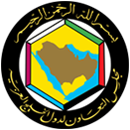Regional Workshop on Labour Force Statistics Organised by GCC-Stat & ILO
The 5-day workshop was inaugurated under the Auspices of the Undersecretary of the Ministry of Labour, It aimed to support statistical agencies in the GCC countries in building and improving labour market statistics، ILO and GCC experts shared experiences and highlighted key issues in labour statistics
The Statistical Centre for the Cooperation Council for the Arab Countries of the Gulf (GCC-Stat) recently organised a regional technical workshop on “Work and Labour Force Statistics - International Standards, Labour Force Survey Design and Data Analysis” in collaboration with the International Labour Organisation (ILO).
The workshop was launched on September 14th at the Crowne Plaza Hotel in Muscat, under the auspices of H.E. Hamad bin Khamis Al-Amri, Undersecretary of the Ministry of Labour, and continued for five days.
Experiences of the national statistics offices in the region were shared during the 5-day workshop where participants will be trained in labour market analysis and report writing. The workshop will contribute to an improved understanding of labour market information and analysis systems, and the role of national labour force surveys.
In her address during the launch of the workshop, Hessa Al Janahi, Consultant at the GCC-Stat, said: “There is an increasing need by decision-makers, stockholders and strategy-makers for information, data and key indicators of the labour market in the GCC region. Such data helps users to understand the challenges of recruitment and employment of GCC nationals and set policies in this direction. One of the main projects GCC-Stat is currently working on is the enhancement of labour market statistics, which aim to provide data and indicators of the sector on a regular basis. Hence, GCC-Stat in cooperation with ILO is developing and planning for improvement of the labour statistics in the region.”
“In October 2013, the 19th International Conference of Labour Statisticians (ICLS) adopted a new resolution concerning statistics of work, employment and labour underutilization that revised the previous international statistical standards used by countries to produce their official national statistics on employment and unemployment. The new resolution is meant to contribute to strengthening the knowledge base on the world of work and to provide policy makers with better labour market information, reflecting the current labour market realities. The implementation of the new resolution will impact the way labour force statistics are collected, particularly through labour force surveys and population censuses. It will also impact the way in which main headline labour market indicators are calculated and disseminated. As follow-up to the 19th ICLS resolution, GCC-Stat is organising this workshop on labour statistics, with the technical collaboration of the ILO, in order to support the implementation of the new standards in countries of the GCC region,” added Al Janahi.
Representing the statistical department at the International Labour Organisation, Senior Labour Economist Theodore Sparreboom also addressed the workshop. “The ILO is very pleased to see such collaborative efforts to improve the labour statistics in the region to international level. This workshop has a heavy agenda that is designed to serve these purposes. The GCC labour market is constantly changing in terms of volume of labour force, nature and quality of work, wages and salaries, and various other related issues. Regular monitoring of labour market trends through adequate labour market information and analysis system is a very necessary condition that contributes to development of employment and labour policies to create decent work. This workshop provides a platform to share experiences and set priorities in the GCC countries with regards to labour market information and harmonisation of labour market statistics in line with international standards,” he noted.
Concluded on the 18th of September, the 5-day workshop included various sessions that focused on issues related to labour market statistics such as: international statistical standard, conceptual frameworks, forms of work, labour force classifications, labour underutilization, planning for a regular force survey system, overview of national labour force statistical practice around the world, data collection and reporting periodicities, as well as reviews of practices and future plans in the GCC region.
Hessa Al Janahi, Consultant at the GCC-Stat, handed over certificates to all participants in recognition of their efforts that contributed to the success of the workshop, urging them to translate what they have learned into successful practices within the context of labour market statistics and related issues. She also reiterated the GCC-Stat’s commitment and aspiration to conduct such events more often in its pursuit to develop the statistical work in the GCC Region.
















